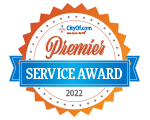Breaking Barriers: A Guide for People with Disabilities Running for Public Office
If you've ever considered running for public office as a person with a disability, know this—you don't need to wait for permission. The political landscape needs your voice, your lived experience, and your leadership. Still, the path to elected office can feel less than inclusive, often shaped by systems that weren’t built with accessibility in mind. But as the world slowly evolves to embrace more inclusive leadership, there’s a growing opportunity not just to participate but to reshape the structure from within.
Start with Self-Definition, Not Limitations
Before you file paperwork or even start building a team, take time to define your "why." What issues fuel your passion? What personal experiences can inform your platform? People with disabilities bring unique perspectives to policy, often grounded in resilience, adaptation, and advocacy. Defining your story on your own terms is the first step toward running a campaign that’s both strategic and deeply personal. Voters respond to clarity of purpose, especially when it’s framed with authenticity rather than apology.
Enhance Your Political Skills with an Advanced Degree
Running for office means stepping into a leadership role that requires knowledge of governance, budgeting, public speaking, and team management. Earning a Master’s in Business Administration can enhance your run for political office by equipping you with leadership, strategic decision-making, and financial management skills that resonate with constituents and support effective governance. A master of business administration in various fields—such as healthcare, nonprofit leadership, or data analytics—can further sharpen your political acumen in issue-specific arenas. Online degree programs make this more accessible, allowing you to balance coursework with real-world advocacy and campaign preparation.
Create a Platform That Reflects Disability Justice, Not Just Disability Awareness
It's not enough to simply mention accessibility in your platform—you need to weave it into your policy priorities. Think about how disability justice intersects with housing, education, transportation, and healthcare. Advocate for systemic change: universal design principles, inclusive hiring practices, and funding for community-based services. Show voters that your campaign isn't just about one issue, but about making society work better for everyone. By centering disability in broader policy discussions, you expand your reach and relevance beyond the disability community.
Fund Your Campaign Without Compromising Your Values
Fundraising is daunting for many candidates, but it can be particularly complex when you have a disability. Traditional fundraising events might not be accessible or energy-efficient for everyone. That’s where digital strategy comes in. Launching your campaign with a strong crowdfunding effort, utilizing storytelling-driven video appeals, and building an email list early can generate grassroots momentum. Make use of matching donation days, partner with advocacy groups for co-branded fundraising pushes, and always track donations transparently. A clear stance on campaign finance and ethics can become a unique strength in a cynical political climate.
Lean Into Digital Organizing and Social Media
Physical canvassing might not always be feasible or effective depending on your disability, but digital organizing levels the playing field. Use social media platforms not just for promotion but for direct engagement with voters—ask questions, respond to comments, and go live often. Invest in digital accessibility: alt-text for images, captions on videos, and easy-read versions of your platform are essential. Email campaigns, virtual town halls, and text banking can often yield better ROI than traditional tactics while allowing you to conserve physical and emotional energy.
Collaborate with Other Organizations
Don’t go it alone. Tap into the vast network of businesses and disability rights organizations, both national and local. These groups can provide training, endorsements, volunteers, and policy input. Partnering with established groups lends credibility and also connects you with a broader coalition of activists and potential voters. Be clear about your campaign’s values and how they align with theirs—collaboration only works when it’s genuine and mutually beneficial. You don’t have to reinvent the wheel when it comes to advocacy; learn from those who’ve been rolling it forward for decades.
Keep Health and Sustainability Central to Your Campaign
This is more than self-care talk—it’s about campaign strategy. Running for office is a marathon, and burnout helps no one. Build rest into your schedule, delegate without guilt, and be upfront with your team about your capacity. Normalize adaptive campaigning. Whether it’s a shorter workday, taking meetings over Zoom, or rotating public speaking responsibilities, show your community that leadership doesn’t have to look one way. That honesty, more than any talking point, can redefine what representation really means.
Running for office with a disability isn’t just possible—it’s powerful. The road might be steep, but every step you take carves out space for others to follow. By centering your experience, building an accessible team, and leveraging modern campaign tools, you’re not just running—you’re leading. And when you cross that finish line, you bring your whole community with you. Not as a token, not as an exception, but as a force for lasting change.
Learn more from Golden Eagle Tax and soar towards a brighter financial future!



